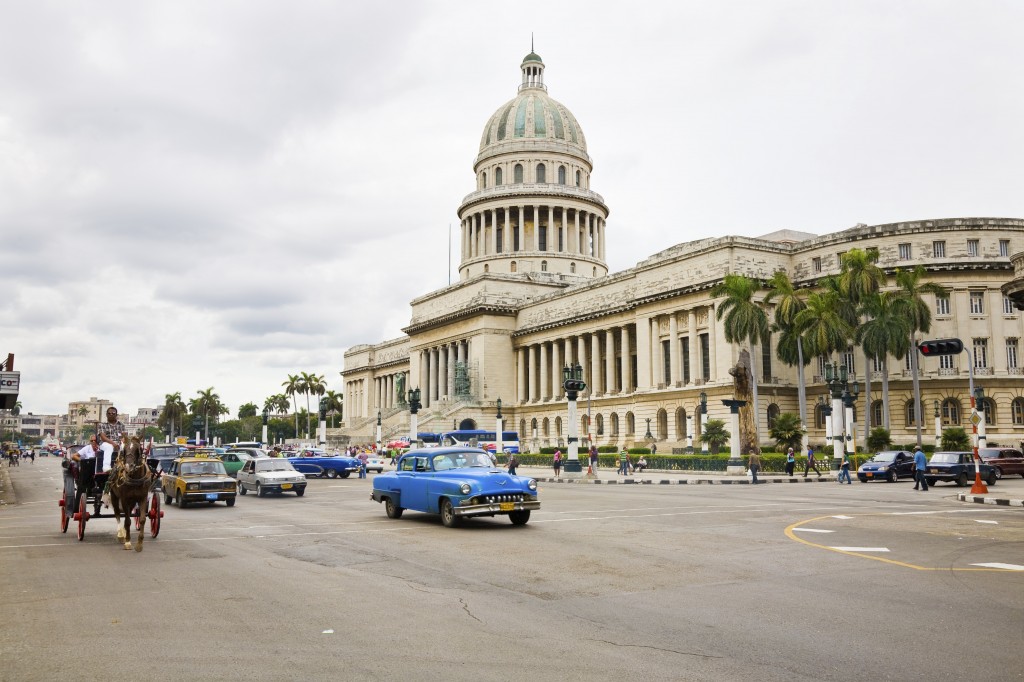Cuba, the largest island in the Caribbean, has been the topic of controversy since an embargo was put in place by the United States in 1960. And while jumping on a plane for a beach vacation to Cuba is still out of the question, under new regulations, more Americans are now able to experience a destination that has been off-limits for more than 60 years. If your visit falls under one of the twelve approved categories here are some important etiquette tips and reminders so you’re prepared for your trip.

Greetings and Conversations
Cuba’s official language is Spanish, but it’s not uncommon for Cubans to speak some English.. However, it’s best not to assume someone you meet understands English, and consider learning a few key phrases in Spanish before your trip. Knowing how to say “hello,” “please,” and “thank you” will be extremely appreciated by the locals. It’s customary to greet males with a handshake and females with a kiss on the cheek. Avoid discussing politics, and refrain from sharing your views on any government leaders as this will come across as offensive. It’s common for Cubans to openly display emotions and for couples to show public displays of affection. There are no restrictions on same-sex marriage in Cuba, but it is not accepted by all or legally recognized in the country. When in doubt, use discretion.
Clothing
Dress is often casual due to the warm weather. It’s not uncommon for men to wear short sleeve shirts in a business setting; however, refrain from wearing shorts unless on the beach. As religion is an important part of Cuban life, women often dress modestly, especially when visiting religious venues. When dining, always remove your hat and avoid wearing beach attire at the dinner table.
Dining
When dining in Cuba, it’s best to take all cues from your host. Wait until your host has started eating before you begin. Use your right hand for your knife and the left hand for your fork – do not switch hands. When taking a break from eating, wrists should rest on the table. Always pass dishes to your left. Men typically hold the door for women and allow them to be seated first and rise when they exit or enter the room. When dining out, make eye contact with your waiter to get their attention as calling them or waving your arms is considered rude. If you’re traveling for business, avoid discussing work when eating with colleagues or attending a business dinner. Dinner is used primarily to socialize and enjoy the food, but if your host begins discussing business, you should follow their lead. It’s respectful to offer to pay the bill, but proper etiquette is for the host to pay.
Tipping
There are no set rules when it comes to tipping in Cuba, but it has become the standard to tip anyone who provides you a service. Some restaurants may charge you a service fee, but it’s proper to tip your waiter or waitress separately if you have received good service. Most travel experts suggest a 10% gratuity for a server and 1 to 3 Cuban Convertible Pesos for taxi drivers and bellhops. Always hand the tip directly to your service provider; do not leave it unattended on a table. Remember that not all U.S. credit cards will not work in Cuba, so it’s best to bring cash with you to tip or convert. Euros are recommended for conversion as you will receive the best exchange rate.
Shopping
It’s common to barter for everything in Cuba with the exception of meals, but it is not mandatory. Many items in Cuba are offered at such a low cost that haggling may seem unnecessary. Two of the most popular items are cigars and rum. Pay attention to customs laws and make sure you’re not exceeding the import limits by trying to sneak an extra cigar (or two!).
Safe Travels!


